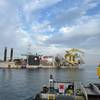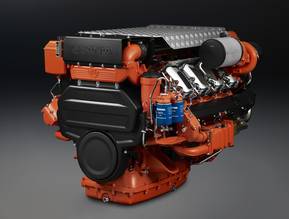According to Clarkson Research Services, the record pace of fleet growth over the last decade and weakening global demand outlook has left many of the major shipping segments facing severe oversupply.
Demolition of older ships is one way of easing overcapacity and recycling volumes have been strong in recent years. The top ten owner countries typically account for the majority of recycling with Chinese and Greek owners leading the way.
Last year a total of 860 ships of a combined 23m GT were reported sold for demolition. This is equivalent to 2% of the start year fleet. During the shipping market boom demolition activity was limited as owners capitalised on the strong earnings environment.
However, the onset of the global recession and strong supply side growth saw earnings weaken and scrap levels jumped to a record 37m GT in 2012.
While recycling has since slowed, volumes in 2014 and 2015 were around 25% above the average 18.1m GT reported recycled between 2005 and 2013. This is despite the recent fall in scrap steel prices, down by 40% since the start of 2015, driven by China’s exports of cheap steel billets to the Indian Sub-Continent.
The top 10 owner countries by demolition volume each year account for roughly 75% of tonnage recycled over the last decade. Demolition is highly consolidated within the top 10.
Chinese and Greek owners accounted for 40% of global recycling in 2015, 9.6m GT. Meanwhile, the third and fourth largest owner countries, South Korea and Japan, recycled 1.8m GT and 1m GT respectively in 2015.
Last year Chinese owners demolished a reported 5.1m GT, 4% of their start year fleet. The Chinese government’s ‘scrap and buy’ subsidy has encouraged domestic demolition in recent years.
State owner companies including COSCO and China Shipping have been most active and account for 70% of Chinese demolition between 2012 and 2015. Meanwhile, with the largest global fleet, Greek owners account for a large share of recycling.
Last year, they are reported to have recycled 4.5m GT, 3% of their start year fleet. Greek owners have a bulker fleet of 89m GT, the second largest behind that of Japanese owners, and bulkers accounted for 85% of Greek demolition in 2015.
Last year, the average age of ships demolished fell to 28 years, and 23 years in the dry bulk sector. Bulkers accounted for 73% of tonnage recycled so it is unsurprising that Greek and Chinese owners led in this activity.
Going forward, greater environmental regulation and the costs of compliance are likely to see younger ships recycled. With around 20% of the fleet over 15 years old this could present a large volume of demolition candidates.
Challenging market conditions are expected to support strong recycling activity in 2016, particularly in the dry bulk sector. The extension of China’s scrap subsidy to 2017 and environmental drivers may also further boost recycling. How many other owner countries follow the lead of Chinese and Greek owners in disposing of older ships will be interesting to see.













